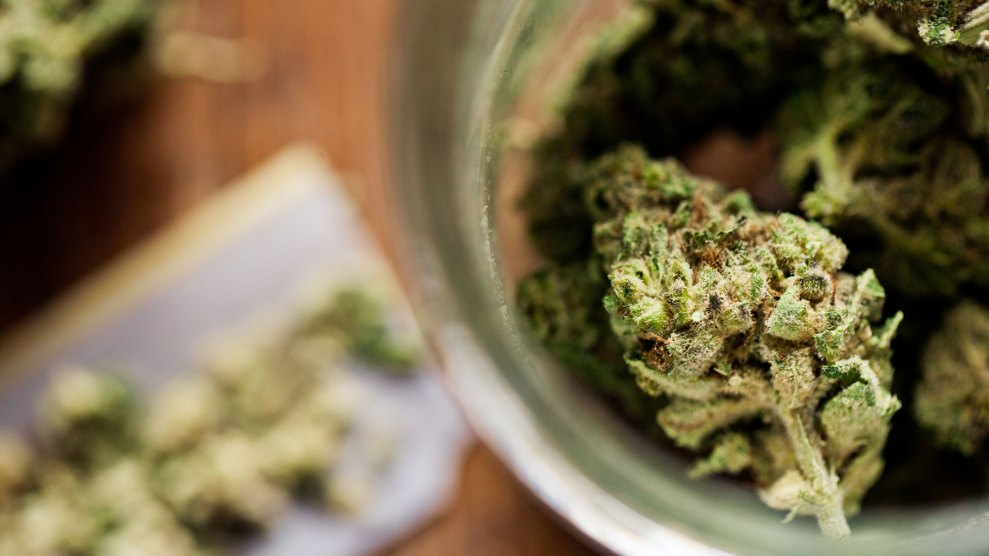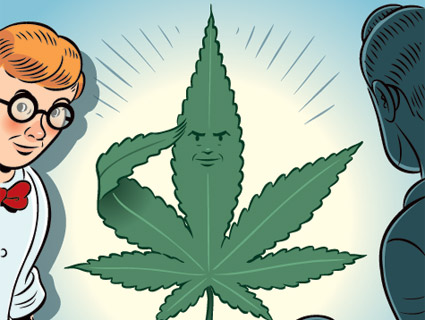With less than a month to go before Election Day, several state level marijuana legalization campaigns have rolled out messaging that pitches weed as an alternative to deadly opioid painkillers.
This week, groups backing recreational legalization in Arizona and Massachusetts launched ads arguing marijuana should be an option for pain patients. Arizona’s Regulate Marijuana Like Alcohol campaign ran its ad during Thursday night’s NFL game, featuring former pro quarterback Jim McMahon, whose career included a stint with the Arizona Cardinals, talking about the painkillers he was prescribed for injuries.
“I was using them daily pretty much the rest of my career,” he says in the ad. “It takes its toll.”
Framing marijuana as an alternative medical treatment is of course not a new argument for pot proponents, but the strength and prominence of the country’s opioid epidemic has given marijuana activists a new chance to argue that cannabis offers a safe, overdose free option to fight pain.
Legalization activists are pointing to recent studies to make their case. One paper that came out last month found that states with medical marijuana saw fewer suspects in fatal traffic accidents test positive for opioids. And earlier this year, researchers at the University of Michigan found chronic pain patients who used medical marijuana were able to reduce their use of opioid drugs by 64 percent.
“It’s not just an argument, it’s an argument based on solid data,” said Jim Borghesani, communications director for the legalization campaign in Massachusetts, a state with one of the higher rates of drug overdoses in the country.
Earlier this month, Nevada backers of recreational marijuana legalization ran an ad showing a marine veteran who says he was prescribed OxyContin, Percocet, and Hydrocodone. After taking so many pills, “You’re addicted; You know you’re addicted,” he said. With marijuana, he says he can treat his pain but “I can also live.”
Proponents of a Florida bill legalizing medical use are running an online ad similar to the TV spots from the recreational legalization campaigns, showing a doctor who condemns prescription painkillers as “dangerous narcotics that have significant risks.”
The death toll from opioid painkillers is staggering, rivaling that of the HIV/AIDS epidemic of the late ’80s and early ’90s. In 2014, there were nearly 19,000 opioid painkiller deaths, along with more than 10,500 heroin overdose deaths, according to data from the Center for Disease Control and Prevention. Painkiller abuse has ravaged communities across the country, and opened the door for a heroin addiction crisis in some towns.
Marijuana advocates have long pitched the drug’s promise to bring relief to people diagnosed with serious diseases, highlighting an evolving series of conditions.
“For years, it was all about cancer and AIDS and glaucoma and these things, and then all of a sudden in 2013 with Sanjay Gupta it became about epilepsy and kids with intractable seizure disorders,” said Ben Pollara, head of the pro-medical-marijuana campaign in Florida. “What you’re seeing with opiate use and abuse and addiction as a rationale for marijuana reform has come about it a similar way.”
Just about three weeks out from the election, a new Gallup Poll shows 60 percent of Americans support legalization.

















